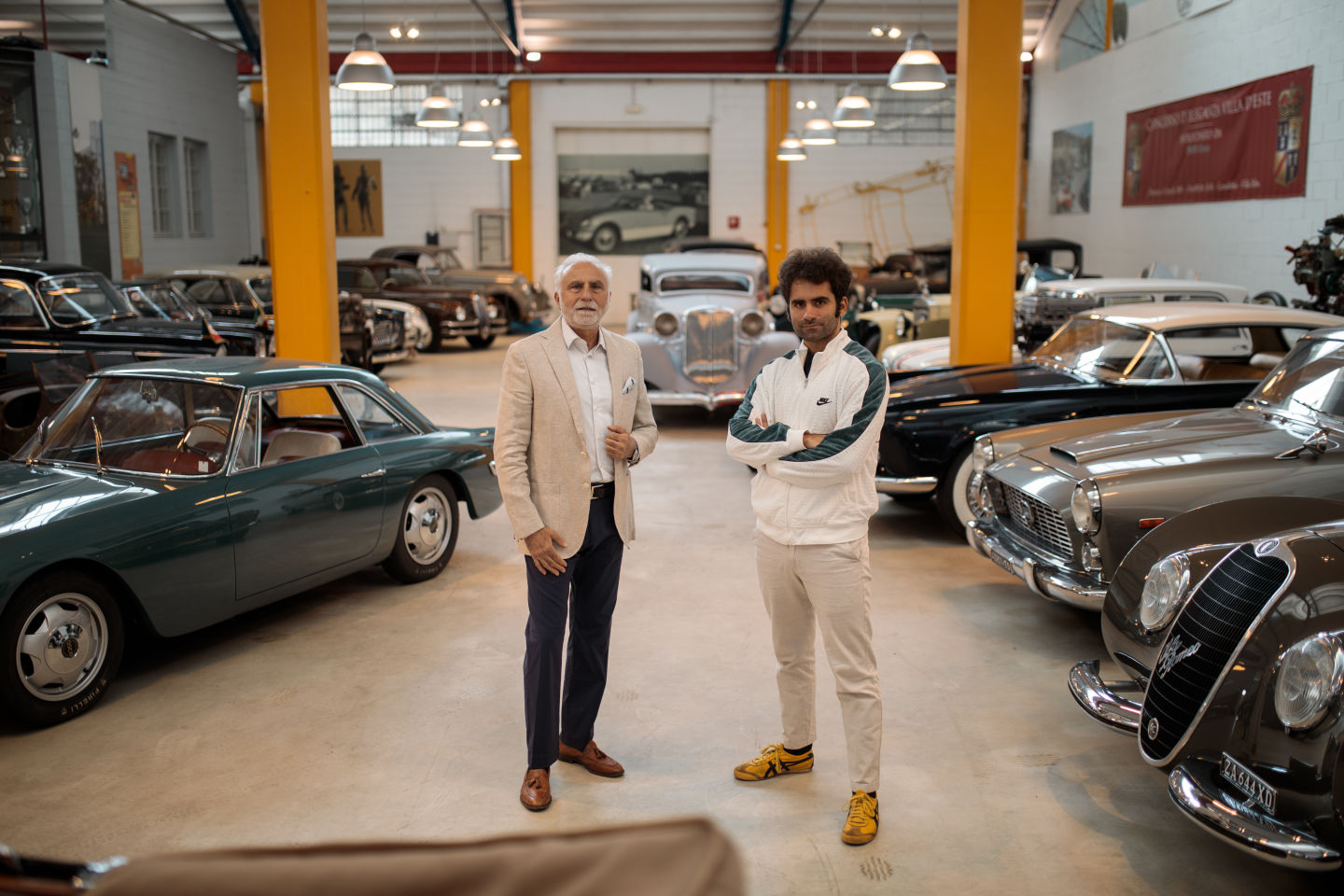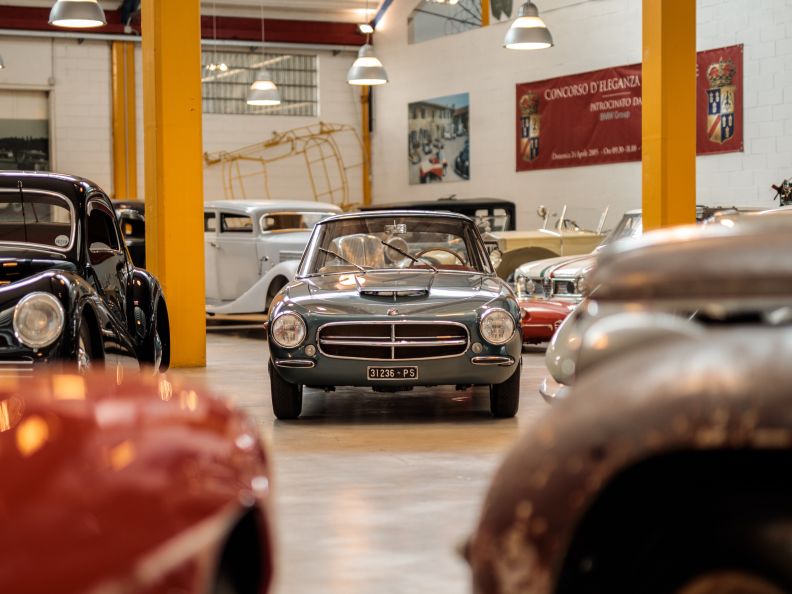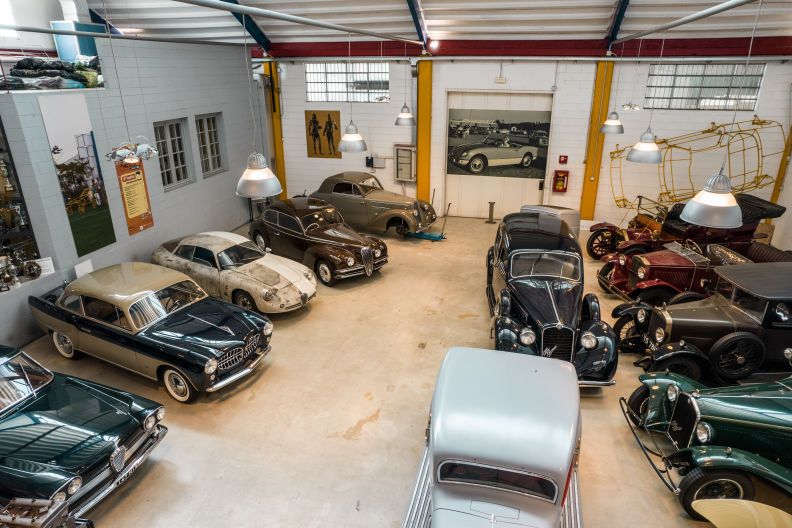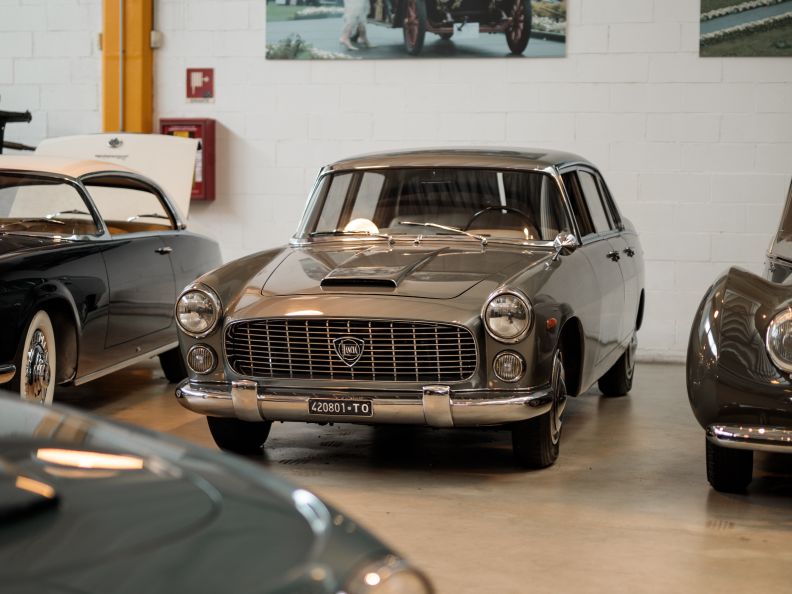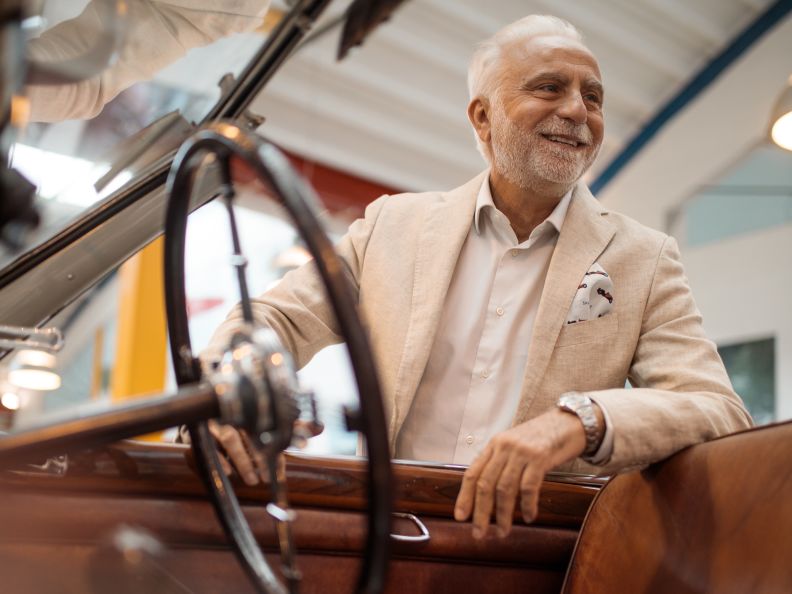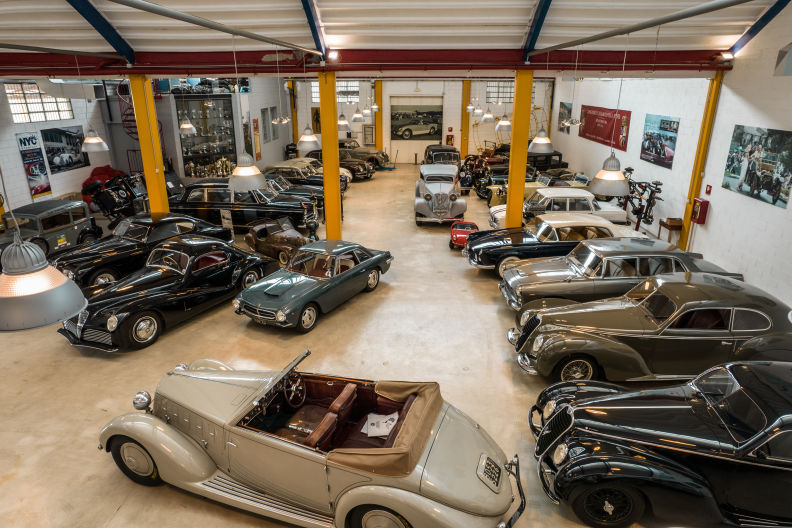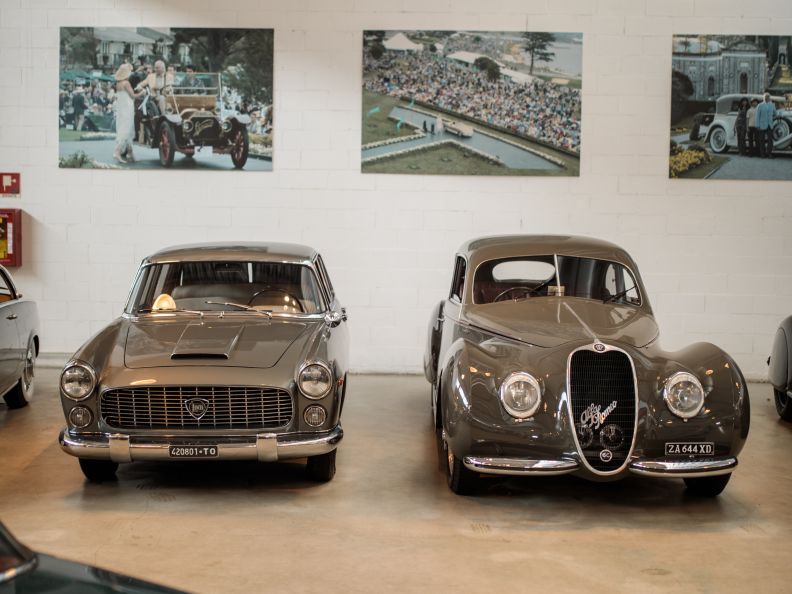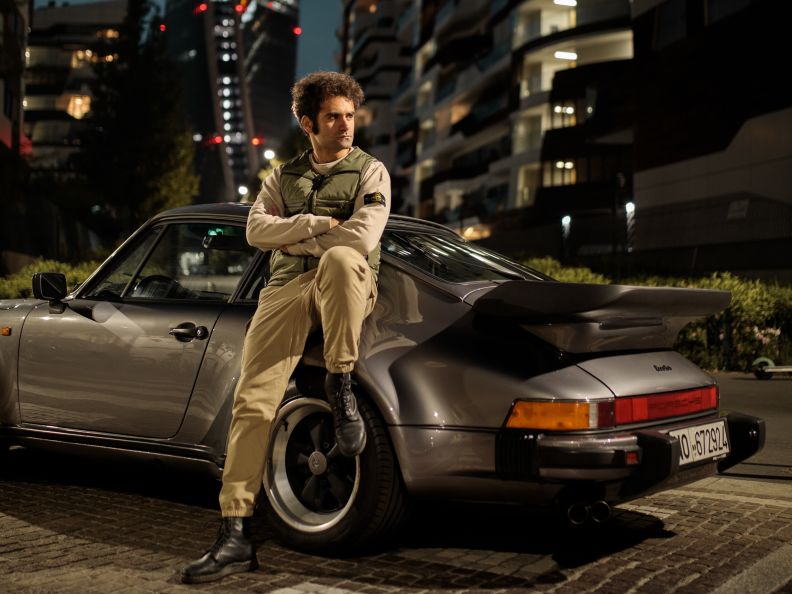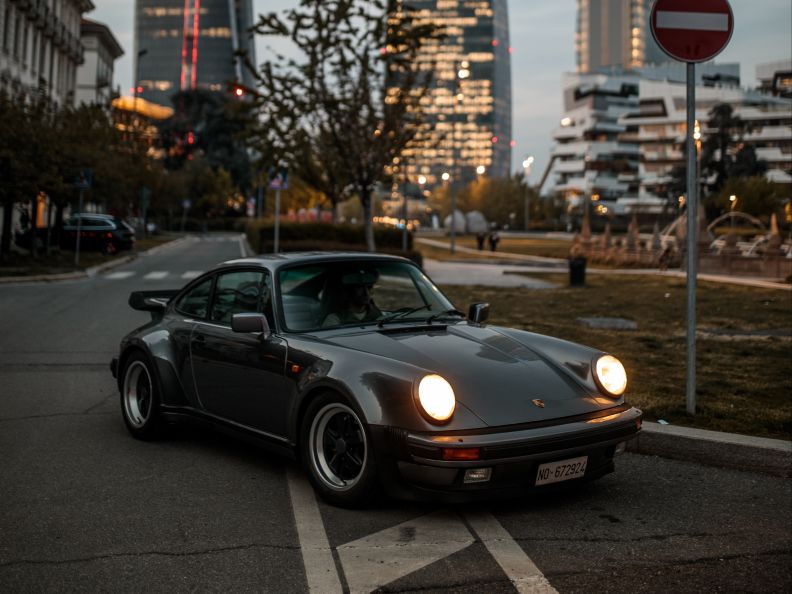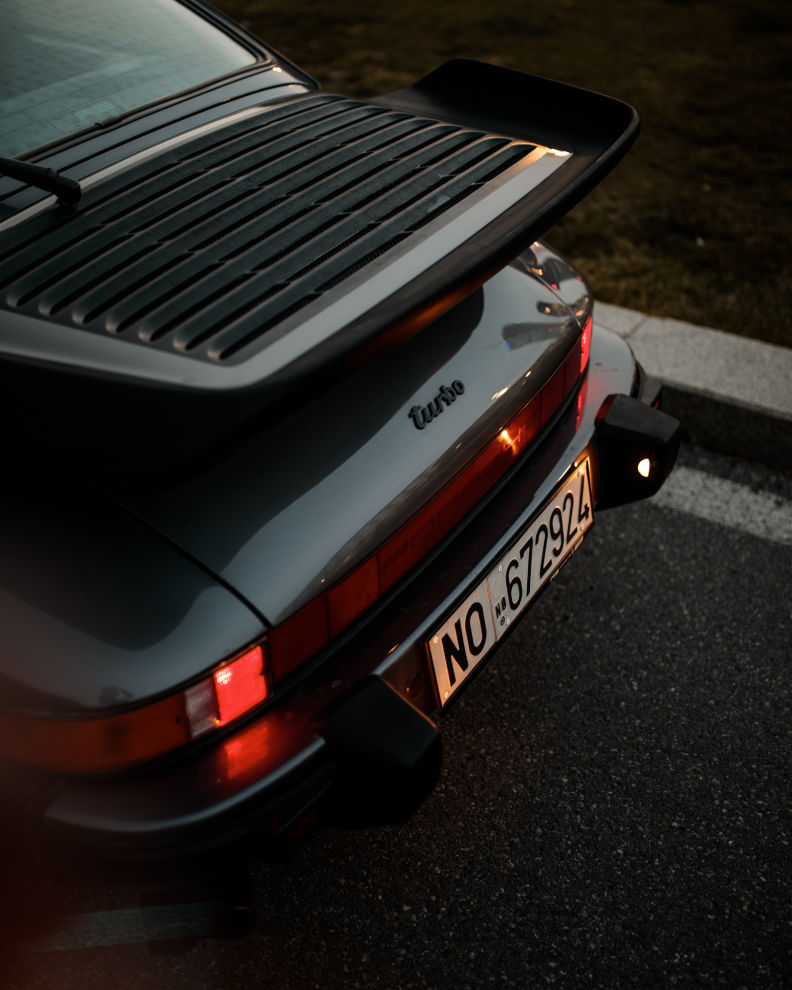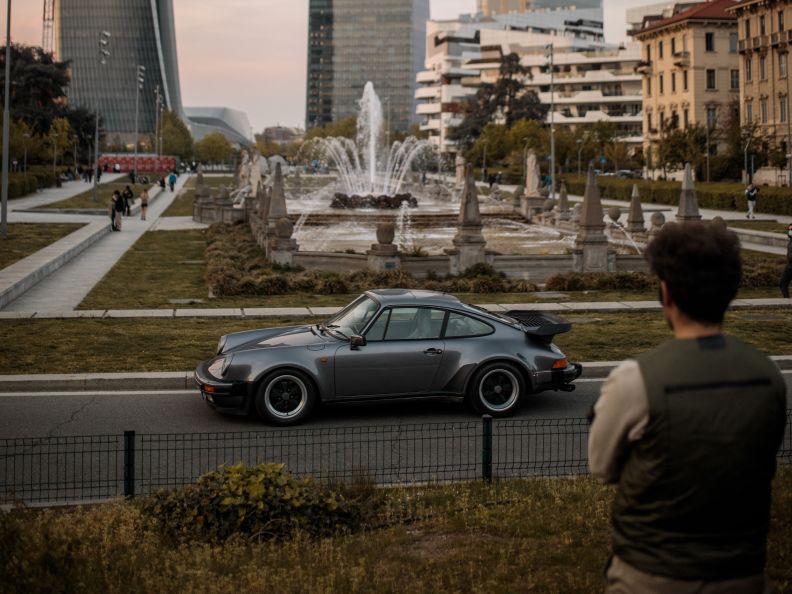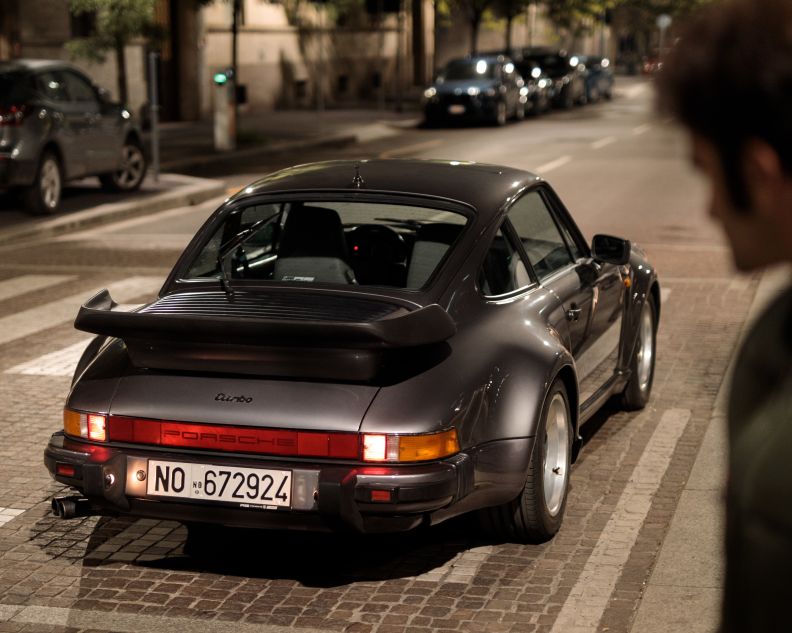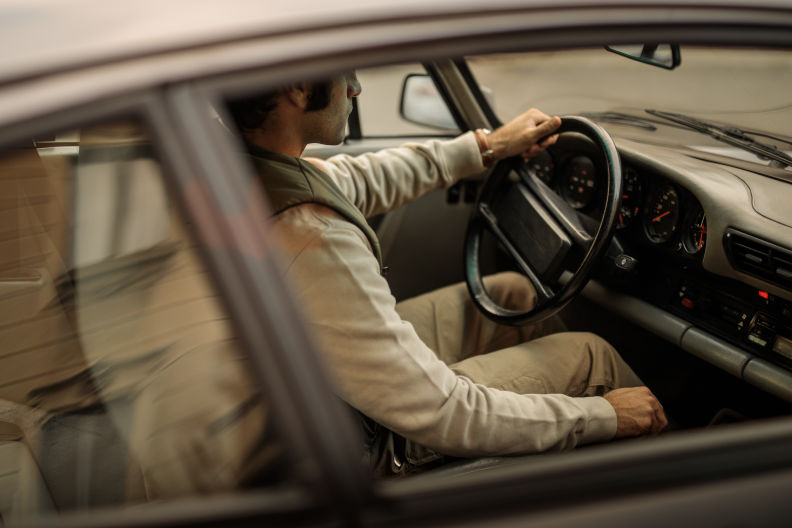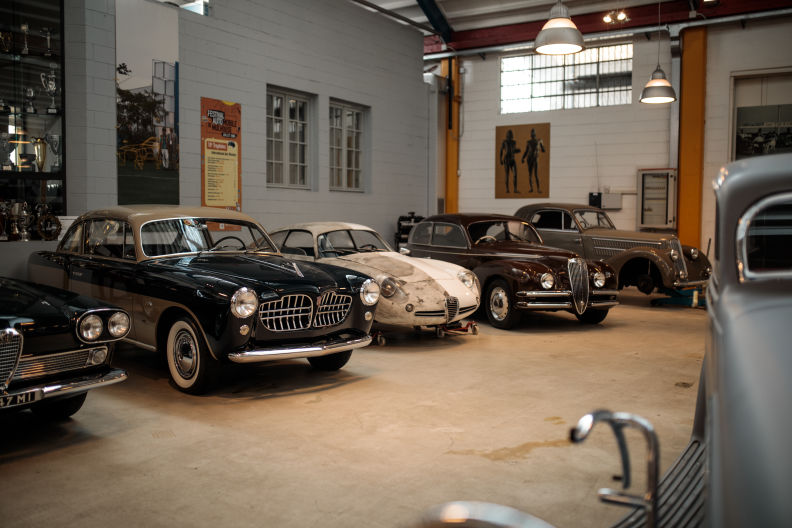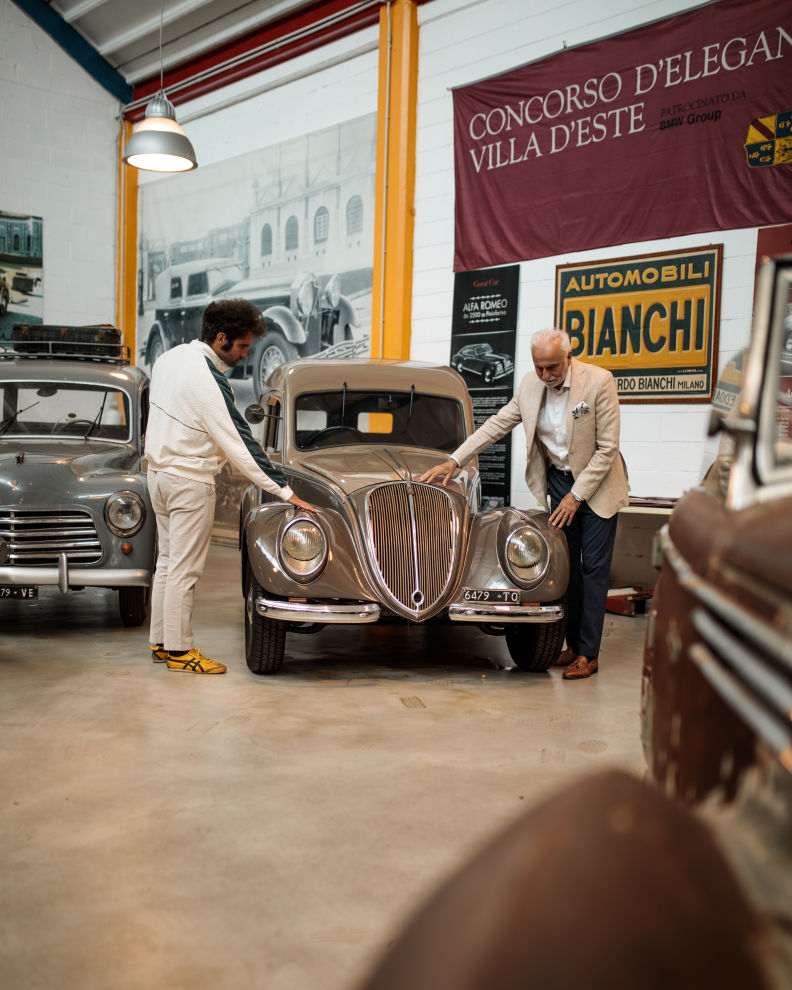Profile
A Porsche 930 Turbo is the only German car in this massive Italian collection
Interview by Federico Fabbri, Photography by Federico Vecchio
Welcome to the Lopresto Collection, one of the world's most impressive and focused car collections with a very specific vision. Beyond exclusively collecting Italian cars, the Lopresto Collection focuses entirely on prototypes, one-off cars, or early production vehicles known as 'first-borns'. Exclusively Italian, with one exception: a Porsche 930 Turbo, but more on that later.
Sourcing cars with their desired characteristics is far from simple, and took nearly 40 years to build the right relationships to not only find, but restore and maintain what has become a fleet of nearly 100 cars. In this time, the Loprestos and their landmark Italian cars have attended and won some of the largest car events and concours in the world.
Duccio Lopresto is tasked with taking the collection into the next generation. While being a passionate collector and one of the world's youngest concours judges he's also active in the fashion and music world as a DJ (not something your average concours judges can claim).
We spoke with Duccio to learn more about their collection and the exception to their 'Italian-only' rule in the 930 Turbo.
Photographed by Federico Vecchio in Milan, Italy
Federico Fabbri: Could you tell us a little bit about your background?
Duccio Lopresto: I've been a very passionate car guy since forever, since I was a very young boy. My father is an architect and real estate businessman, and he's always been very passionate about classic cars. I've been following him to every concours, every restoration shop, every event in the classic car world. This made me really passionate about these cars.
I studied economics in London and I did my masters in Barcelona. I wanted to do something outside of the world of cars, but in the end, I was completely stuck in this world. After graduating, I started working for Lamborghini in their marketing department, but decided that was not my ambition.
I wanted to follow my passion, so I decided to go back to my origin. That's why I'm working in the classic world today continuing to build the Lopresto Collection, which is now a more than just a collection, but a brand.
My background is a mix of, let's say, analytical skills, thanks to my economics studies, but mostly a big, big passion for music and cars.
Federico: The Lopresto Collection regularly participates in concours around the world, but you’ve not only been an entrant but a judge as well. What's that like?
Duccio: Concours d'Elegance can be a very weird event for a person who is outside of this world. From the outside, they appear to be very exclusive and private events. This, to be honest, is something that I don't really like. But in general, they are fantastic events when talking about classic cars. Events like Villa d'Este, or Pebble Beach, or Salon Prive in England, gather the best, the most amazing cars in the world from the most discerning collectors.
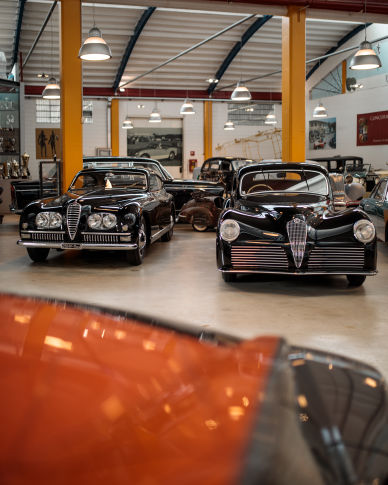
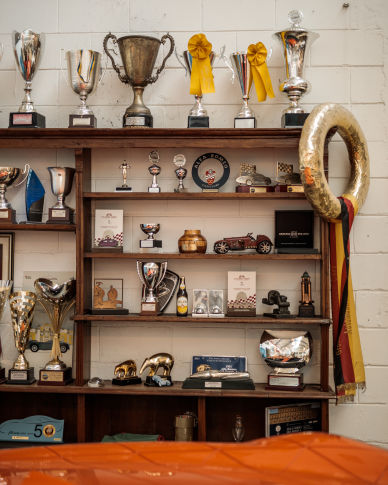
Photographed by Federico Vecchio in Milan, Italy
The thing that I love the most about concours is the preparation before the show, which is something we try to share with people beyond the event. Collectors prepare for months, or even years in advance. They restore their cars. They research and gather documentation to perfect the car’s presentation and hopefully win awards. But I think awards are more of a consequence, and not always the objective.
Federico: What is the objective, in your view?
Duccio: I think the objective as an entrant at concours is really to show pieces of history that were lost. Being an entrant is tough because you have to present the car in the right way and the best possible way, which is very time consuming. Obviously, that is very stressful because if you go, for example, to Pebble Beach, it's tough to enjoy the show because you're stressed about the judging and presentation of the car.
I think for the future, for the next generation, it should be more inclusive and more open to the public, so that they can be more involved.
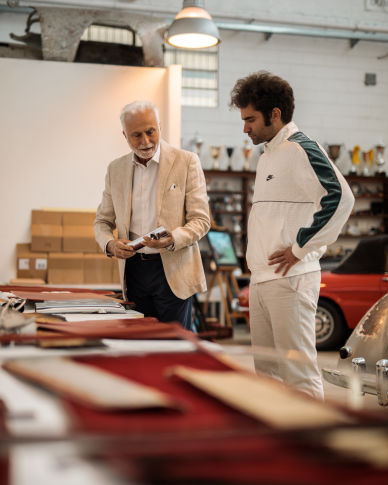
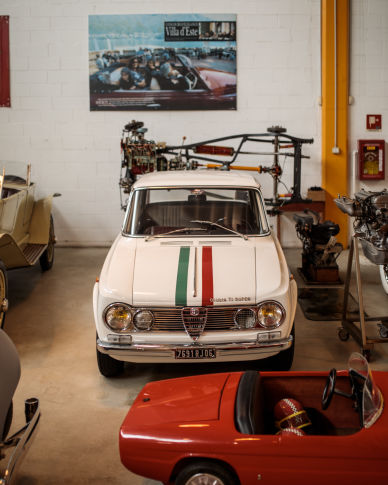
Photographed by Federico Vecchio in Milan, Italy
Federico: You’re also one of the youngest concours judges ever. That must be a high-pressure situation given what’s at stake.
Duccio: You know, being a judge for me is something new and I really enjoy it. I started two or three years ago when I was 25. At that time, I was one of the youngest judges in the game. I enjoyed it because it's something that allows you to increase your knowledge about these cars in a huge way.
You have to study all the cars in the class, which really means that you also have to study the entire history of the model, the history of the designer, the history of the people behind that car. And you have to study all this so well because you are expected to know more than the owner, and that's not always easy as they are also very knowledgeable.
Federico: It’s great that you can bring a youthful perspective to these shows. Of all the awards your cars have won, which are the most memorable moments for you?
Duccio: We've won a lot of 'best of show' awards, but winning at Concoso d'Eleganza Villa d'Este with the Alfa Romeo Giulietta SS Prototipo was surely one of the best moments for us. You know, winning Villa d'Este, the most important concours in Europe, with a four cylinder car is pretty special. Especially against bigger Alfa Romeos, the Ferrari California, and some crazy expensive million-dollar cars. That car is just amazing and I'm very happy that the jury understood the beauty.
Apart from this award, another special memory was winning the FIVA (the Fédération Internationale des Véhicules Anciens) award in the Preservation Class with our half-preserved, half-restored Alfa Romeo SZ Coda Tronca. That was the first time that such a 'drastic' car was received recognition by FIVA and UNESCO.
It was the epitome of what we do and our philosophy and our approach to classic cars. I don't think there's anything better than that.
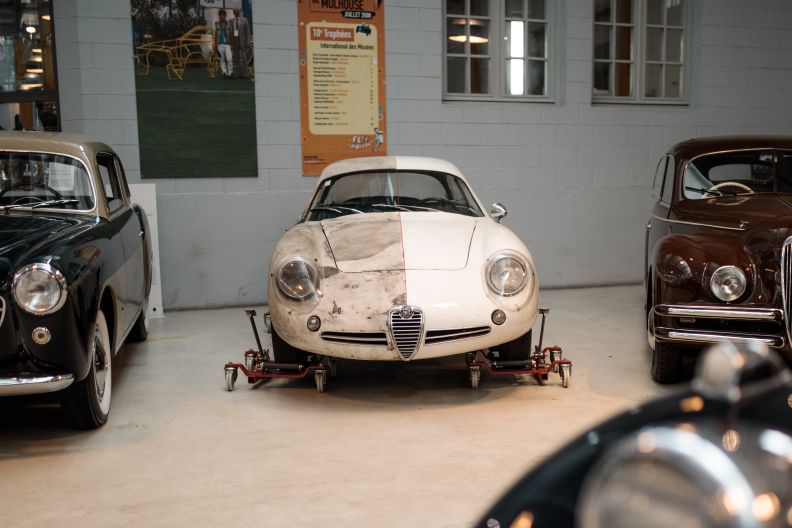
Federico: Your collection focuses on prototypes and limited editions. How did it start, and what was the first car that started everything?
Duccio: The very first car was a Fiat 508 Balilla that my father bought in 1979, which effectively started the collection. He was only 18 or 20, and he bought his car and started restoring it, and found out that this car was not a normal Balilla but a limited edition example. Since then, his passion grew stronger and stronger because he realized that he had in his hands something more special than usual.
Then after this restoration of the Balilla, my father started gathering many of these unique examples and prototypes, because all these cars had a unique story to tell.
The design of prototype cars are completely different from the production vehicles, in most cases. Being an architect and a lover of beauty and design, he always wanted to collect these cars.
Photographed by Federico Vecchio in Milan, Italy
If you think of how the collector car market was back in the 80s, 90s, and early 2000s, there weren't a lot of people who wanted the cars that we own today. They wanted Ferraris, Bugattis, or more expensive and faster cars. So my father, in a way, had the right vision to gather these cars in a unique collection, which is a one-off instance in the world. Nobody has the same cars we have, so he made the right move.
Today, these types of cars are recognized, especially because they're part of a single collection and represent these historical pieces of design from Italy. It's a world of culture and design that's something special.
Year after year, the collection developed. We were lucky because we could afford these cars when the values were really, really low, so some of the cars we bought back in the 90s, almost for free. For example, with Alfa Romeo, some of the prototypes we have we bought directly from the factory in the early 90s because they wanted to destroy these cars. So my father was able to buy them for the value of the car's metal, really.
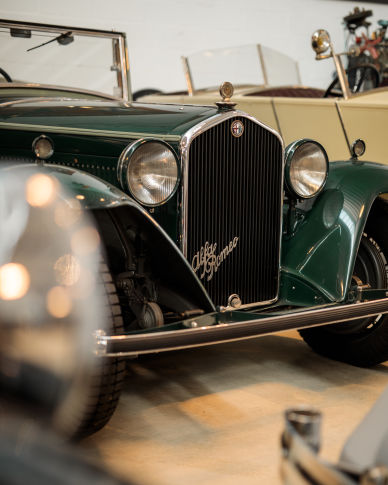
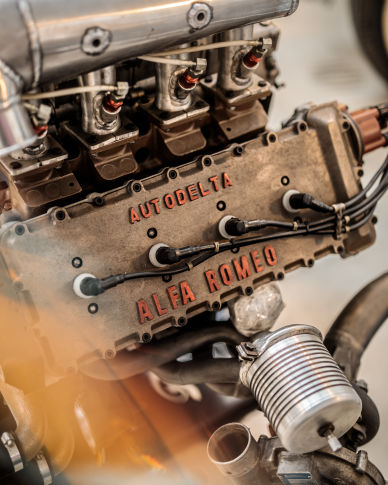
Photographed by Federico Vecchio in Milan, Italy
Federico: Likely because they couldn't take care of such restorations back then. They must have been very happy to find a person who would.
Duccio: Absolutely. Our collecting philosophy offered a solution at a time when manufacturers did not, or could not, keep some of these special cars. We always emphasize this as people tend to think we have a crazy expensive collection, but we bought these cars when they were not expensive at all. It’s important to know my father was not looking for an investment. Of course, when there's an investment potential you're happier, but the vision was to gather the most important art pieces made in the ‘60s by Italian designers in Italy for the past 100 years. And now we have cars from 1901 up to the early 2000s and beyond.
Federico: What kind of maintenance and restoration is involved in preserving the collection?
Duccio: Managing a collection is always a headache, but we have a lot of experience. The experience goes back to 1979, so it's 40 years of knowing the right people. We have an extensive network of artisans, of mechanics, of supporters and people who work together with us to maintain these cars.
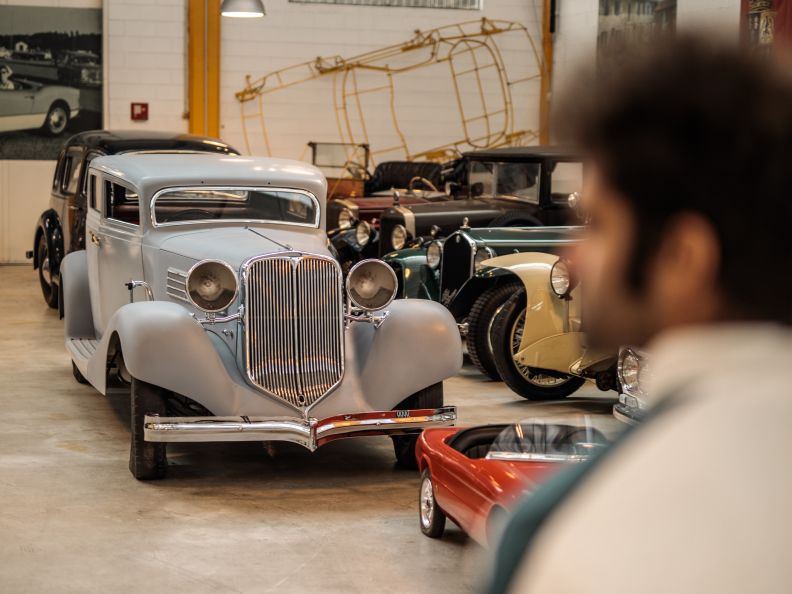
I would say that the most difficult part is the restoration process, especially the costs. Fortunately, we introduced a new approach to restorations, which focuses on the preservation of these cars, which is less costly than a full restoration.
Thanks to the techniques of our artisans, who are able to preserve pieces that people thought were lost, we are able to bring them back to a new life. The approach is very similar to that of fine art restorations.
Federico: Would you say the maintenance is easier once the preservation of a car has been completed and more a matter of following a route? Having a great network of professionals must make that easier as well.
Duccio: Exactly. That's what we do. We have a process. The quality of the restoration is extremely important. Once you do it well, the car is well prepared to be used or put into storage. We keep all the cars ready to go. It’s also less costly because we try to do it all in-house.
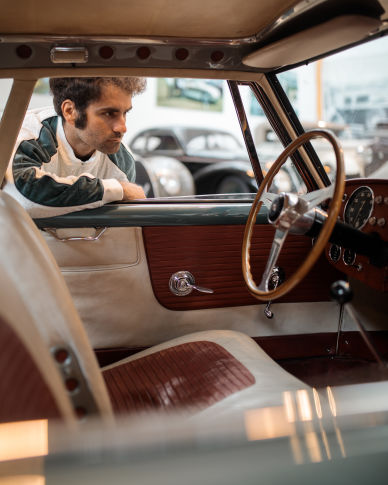
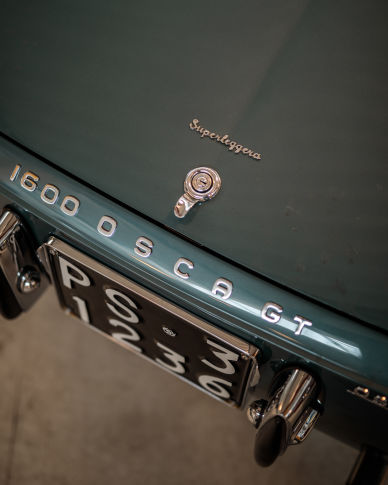
Photographed by Federico Vecchio in Milan, Italy
Federico: What would be your advice for someone looking to begin collecting cars?
Duccio: Very good question. I think the first point is to think with your head and to be independent in terms of choices and in terms of choosing the right philosophy for your collection. Every human being has his or her own philosophy in life, and it’s the same for collecting cars. You have to have your own idea. Like my father, we want to have Italian prototypes and concept cars, because we have a mission. We have a philosophy behind preserving these objects.
Start with your own passion. If you think it's beautiful and you think it fits you, you should buy it. I wouldn't start the collection based on investment or other kinds of finance.
Federico: Start with what really gets you excited, and then develop a philosophy from there.
Duccio: I always start with passion. There are so many ways to make money. If you're not passionate about the car world and you want to make money, I think you miss the whole point. So cost is always a consideration for me, but to start, surely, do a lot of research.
Unfortunately the car world is not very well regulated, so when buying cars, be careful. Buy the right car. Do as much research as possible before buying it. Try to buy an original car that has not been completely modified, because the money you will spend in restoring and bringing back to original condition can be very expensive. My other advice is use the cars, because even if we like to go to concours and we love beautifully preserved and restored cars, we drive them a lot.
Follow your passion, do your research, drive the cars, and then share the passion.
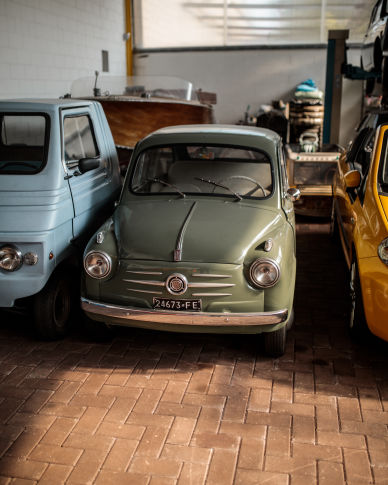
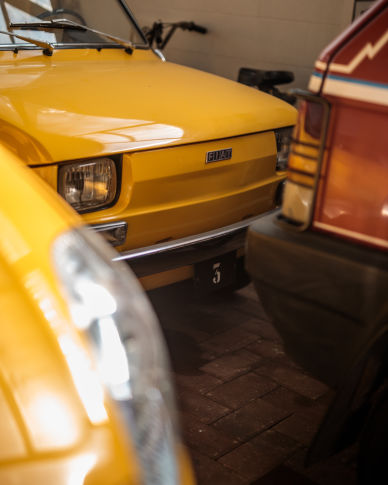
Photographed by Federico Vecchio in Milan, Italy
That's also very important for me: share the passion with your friends and with the people around you. Because it's like a kind of a virus, the passion. If it's good, then it's a good virus and everybody gets it. And it's good for this world, especially if young people begin collecting cars and begin sharing the passion of these cars.
Federico: That’s great advice. Let's talk about the only non-Italian car in the collection, your Porsche 930 Turbo.
Duccio: The older cars are strictly Italian-built, or designed by Italian designers. Our Porsche, though, has a unique story. 10 years ago, I was with my father and we were driving on a road around Milano, and we saw this Porsche 930 for sale in a very small village. Then we said, "Oh, my God, that's a 930. That's so cool, but we will never buy it."
Photographed by Federico Vecchio in Milan, Italy
But then we talked to the owner, and he told us the history. Then when he realized who my father was, and he was a big fan of the collection, so he said "I want to sell this car and I would love if you would have it." So we thought about it, and yeah, we bought it for a very, very good price back in the day. Why did we buy it? Porsche is the only brand, apart from the Italian brands, that we love, and that has the sort of unique design elements that are completely timeless.
Federico: Yes. It is certainly a very timeless design.
Duccio: That attracts us quite a lot. I'm not saying that we start buying Porsches now, but we did with that car given the whole story of the owner, a very passionate guy who loved our collection of Italian cars, and that the Porsche 930 Turbo was the most powerful production car back in the day.
Federico: The so-called “Widowmaker.”
Duccio: Yes, the Widowmaker. My father, when he was like 35 or 40, he also had a Porsche Carrera as his own car in Milano, so he had a thing for Porsche.
The 930 is quite a special piece in our collection also because it's completely preserved in original condition. Never restored, never painted, and a unique ownership before we bought it. Then I drove the car, and I fell in love with it.
Photographed by Federico Vecchio in Milan, Italy
Federico: And what about the driving experience? The famous and sudden torque from the turbo must be quite special. I've driven a few 930s and it's pretty scary, especially when conditions are wet.
Duccio: Absolutely. The first time I drove it, I must say I was a little bit surprised in two ways. So we were driving with my father here in Milano. Driving it slowly, you don't feel anything. It's like a normal car, and it's a little bit upsetting, because you're like, "What's this whole fascination with the Porsche Turbo? It's so slow!" But then when you push and you reach about 4,000 RPM, it's like Dr. Jekel and Mr. Hyde! It's a completely different car!
The turbo kicks in and you enter this hurricane, this boost of power, which is difficult because it's rear wheel drive and the front basically has no weight.
So, when you drive it and you push hard, and when I say hard, I mean push all the way down, I think it is the scariest car I've ever driven, together with the Ferrari F40.
The 930 Turbo is by far one of the scariest things I've ever driven in wet conditions. Two, three times, I was driving quite fast, and the road was quite wet. Yeah, I don't think I will ever repeat a drive that fast in that condition. You can lose the back very easily, especially when you turn, but also just going straight.
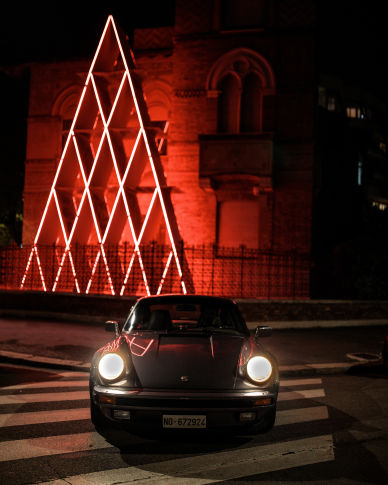
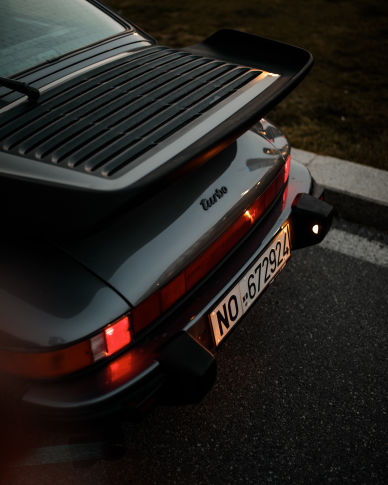
Photographed by Federico Vecchio in Milan, Italy
Federico: It takes some courage. Are there any other non-Italian classics other than Porsche you are attracted to?
Duccio: To be honest, after buying the 930 and the preservation and the service we did on this car, I started researching Porsche and I loved the brand more and more. I think the fact that they maintain these very pure, unique designs still today is special. We wouldn’t collect a modern Porsche, but we certainly appreciate that they maintained that design element. I think it's the only brand in the world that did that. In the future you never know, maybe. I love the Speedster from the 80s. I also love the 996 Turbo. It is another great car that for sure will attract a lot of interest in the near future.
Federico: Yes. And even today, actually.
Duccio: Even today, exactly. I don't know if we will buy more Porsches because we're not buying cars at the moment, new cars, because we have just so many in the collection.
Photographed by Federico Vecchio in Milan, Italy
Federico: How many cars do you have now?
Duccio: We have around 100, I would say. When my father is asked this question, he says "We don't have as many as we wanted to have."
Federico: Yes I suppose you don’t! Duccio, thank you for your time today. We look forward to seeing your collection grow.
More about Duccio Lopresto
With Duccio's direction, the Lopresto Collection is one of the more active car collections online with content and an inside look at daily activities and adventures of the cars. You call follow along on Instagram here (@lopresto.official) or check out their website.
Meet our contributors
Federico Fabbri is a leading lifestyle and motoring journalist in Italy with bylines at GQ Italia, Type 7, and more. You can follow him on Instagram (@d1fretta) and on his car culture page which curates great historical images (@motoringtitude).
Photographer Federico Vecchio's roving eye finds both great cars and great people in Italy and across Europe. You can find his work on Instagram (@federicovecchio_).
Comments (...)
What to read next
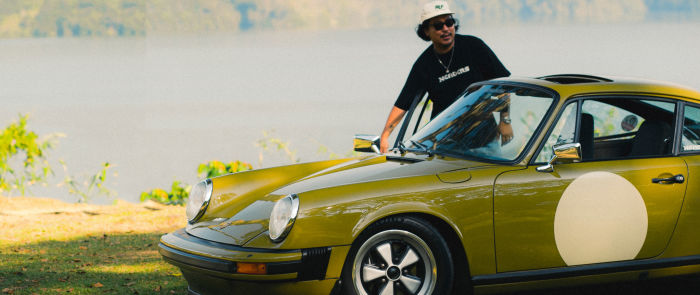
This Malaysian Porsche 911 went from scrapheap to showstopper
0 comments
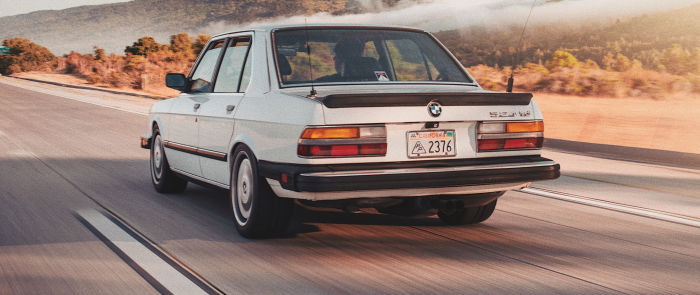
Enthusiast Roundtable: The BMW E28 is a classic driver for the modern world
0 comments
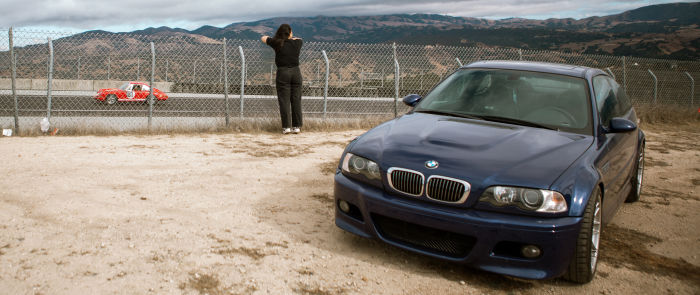
How Rennsport Reunion 7 transcends Porsche as the ultimate enthusiast gathering
2 comments
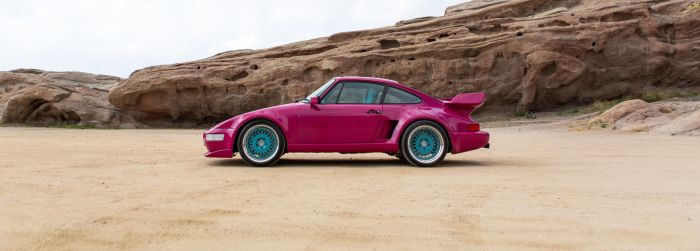
Meet a few of Porsche Classic's finest winners from this year's Restoration Challenge
0 comments
Suggested listings

1964 MG
B Roadster
Eldersburg, Maryland 21784
NaN days left
Current bid:
Time remaining:
NaN days left

1973 Triumph
TR6
Eldersburg, Maryland 21784
NaN days left
Current bid:
Time remaining:
NaN days left

Sold
1980 Triumph
TR8 Convertible 5-Speed
Eldersburg, Maryland 21784
Before you get started
Please verify your account. You can do so by clicking on the link in the email we sent you.
Can't find your verification email? Click to resend it.
This website uses cookies. We do this to better understand how visitors use our site and to offer you a more personal experience. We share information about your use of our site with social media and analytics partners in accordance with our Privacy Policy. Additional information for California residents

